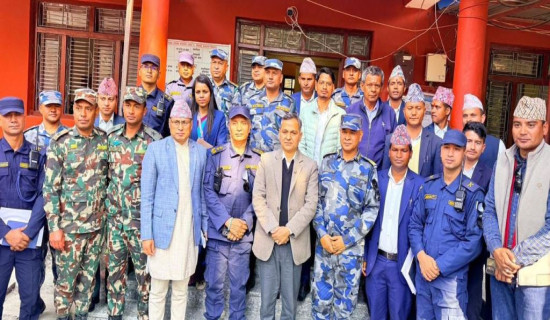- Monday, 2 March 2026
Investments In Automobiles
With Hyundai, a South Korean corporation, foraying into assembling automobiles in Nepal, the country industrial sector will receive a new fillip at a time when it passing through economic trouble. The assembly plant has been set up in Nawalparasi in collaboration with Laxmi Motor Corporation, which is the authorised distributor of Hyundai vehicles in Nepal. The government has supported this industry by offering substantial tax breaks on the assembly of vehicles, including reductions in customs duties, excise taxes, and income tax for assembled cars. International car manufacturers bringing advanced manufacturing technologies and expertise to a country like ours, facilitating knowledge transfer and skill development among locals, is a positive development, and boosts regional economy and enhance export potential.
Addressing the plant’s inauguration programme, Prime Minster Pushpa Kamal Dahal ‘Prachanda’ said that the government is committed to accelerating the economic transformation of the country by boosting the morale of the investors. The third Investment Conference has recently concluded, and the government has enacted ordinances to amend crucial laws, aiming to enhance the country's investment climate as a preparation for the Investment Summit. The government has created an investment friendly environment for the multinational industries like Hyundai to operate in Nepal. It is expected that the local people will get employment opportunities and at the same time multinational companies eager to operate in Nepal will get to exploit the cheap labour, and abundant natural resources in comparatively lower cost.
The establishment of car assembling plants requires significant investment in infrastructure such as roads, utilities, and transportation systems, and the establishment of such companies is expected to contribute to overall development of the region, but at the same time environmental degradation and haphazard use of natural resources can take toll on countries like ours. So, the government should focus on creating a win-win situation where the economy of both countries can thrive, the citizens get employment and the harm caused to the environment is minimal.
The Hyundai assembly plant, occupying an area of 10 bighas in Ramgram Municipality-6, Nawalparasi, has been furnished with machinery and technology valued at more than Rs. 1.5 billion. Initially estimated to require an investment of Rs. 5.01 billion four years ago by Laxmi Intercontinental Pvt Ltd, the facility is now up and running. By producing vehicles locally, the country can reduce its reliance on imported cars, which are subject to high custom duties and taxes. This can potentially lead to a decrease in the overall price of cars available in the market, making them more affordable for the Nepali people.
Assembling cars locally can reduce transportation costs associated with importing fully assembled vehicles, which can lead to lower prices for consumers. Local assembly plants may be able to customise vehicles to better suit the preferences and needs of the local market, which can led to greater consumer satisfaction. However, the government should create a balance between the economic growth and job creation addressing the environmental degradation and exploitation of cheap labour to benefit from such ventures.
















